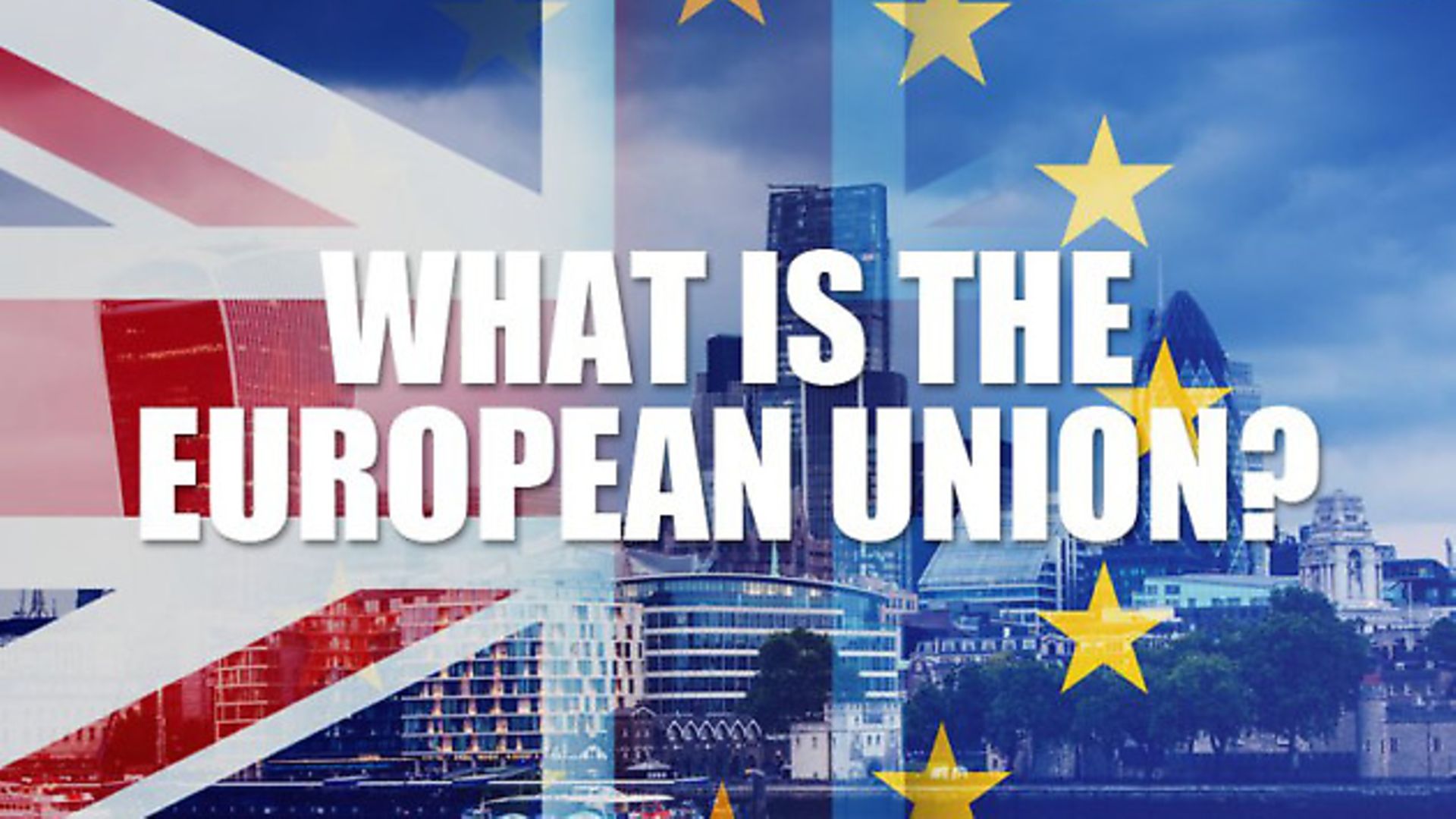
The European Union is a political and economic union of 28 nations – which still includes Britain.
https://www.youtube.com/watch?v=Wod-MudLNPA
Member states are allowed to trade freely within the region as part of the single market. People, services, capital and goods can cross borders freely as if the EU was one nation.
The EU has a population of around 510 million people, it has a flag – stars in a circle on a dark blue background – and Ode to Joy by Ludwig van Beethoven is its anthem.
Around 7.3% of the total population of the world are EU citizens and it generates a gross domestic product of $16,477 trillion which is around 22% of global GDP.
Why was the EU set up?
In the aftermath of the devastation of the Second World War – and with the First World War still fresh in the memory – European integration was seen as a vital tool to stopping any further bloodshed. However it took until 1957 for Belgium, Italy, France, Luxembourg, The Netherlands and what was then West Germany to sign the Treaty of Rome which created the European Economic Community.
In the 1970s the community grew. Britain joined the EEC in 1973 and a referendum two years later confirmed membership with 67% voting for stronger links with the continent.
In 2002 12 members states gave up their currencies and replaced them with the euro. A further seven countries have joined the single currency since then.
Former British Prime Minister Tony Blair was supportive of Britain joining the euro but his chancellor Gordon Brown battled furiously for the UK to keep the pound. He placed five economic tests on Britain’s ability to join the single currency and a planned referendum was never called.
The modern EU
Today the EU operates with seven key decision-making bodies known as the institutions of the European Union.
They are:
* The European Council
* The Council of the European Union
* The European Parliament
* The European Commission
* The Court of Justice of the European Union
* The European Central Bank
* The European Court of Auditors










